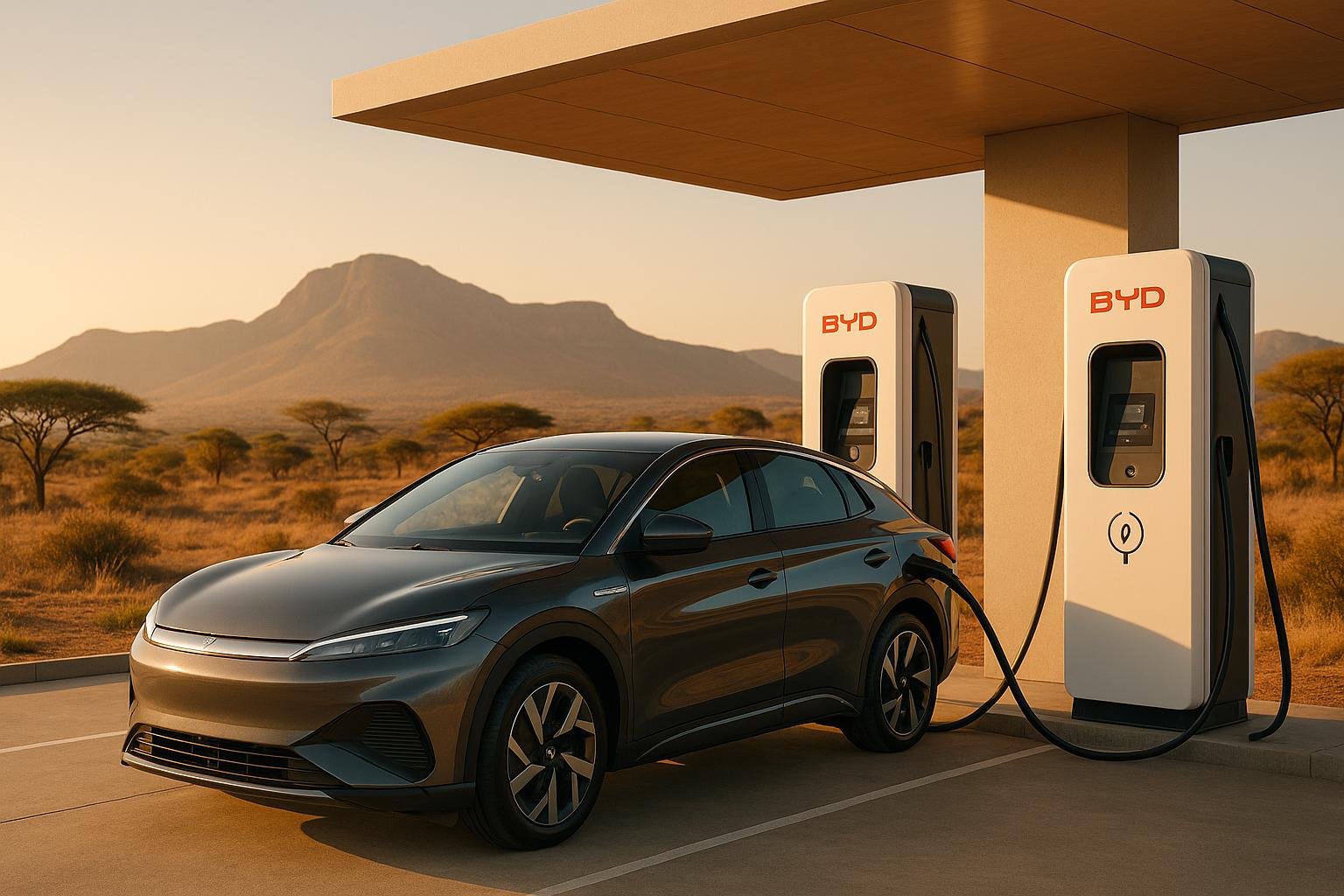
Chinese electric vehicle (EV) manufacturer BYD has unveiled an ambitious plan to establish between 200 and 300 fast-charging stations across South Africa by the end of 2026. The announcement underscores BYD’s broader strategy to expand its footprint in international markets, including Africa, which it sees as a key region for its operations.
During an interview with Bloomberg, BYD’s Executive Vice President Stella Li highlighted the company’s commitment to bringing innovative solutions to South Africa. "We feel this continent, especially also South Africa, needs to be with the technology to bring the solution, to bring also innovation here. Then they need a company like us to bring more valuable, like, story and a solution here", she said.
Expanding Infrastructure to Boost EV Adoption
The investment in charging infrastructure is part of BYD’s effort to address one of the primary challenges to EV adoption: the availability of reliable and accessible charging stations. According to Li, the company is focusing on "flash chargers" that could potentially include solar panels, making the solution both sustainable and efficient. "We can build our solar panel slash charging station here. We’ll put a solar panel on the top of our flash charger. Then we can power the all-electric car here", she explained.
BYD’s move comes as part of its strategy to provide comprehensive technological solutions, which include not just EVs but also batteries and renewable energy products like solar panels. Li emphasized that the company is more than just a car manufacturer, noting, "We have 120,000 R&D engineers there with a summit of 45 patents per day. So it is not really just a car company."
No Immediate Plans for Local Manufacturing
While BYD is actively building a network of dealerships and charging stations in South Africa, the company has no immediate plans for local manufacturing in the region. "We’re lucky in the initial stage for the double down and triple down on dealer networking, and they’re building flash charging infrastructure here so we don’t have a data plan yet", Li said during the interview.
The company is also introducing its "super hybrid" vehicles, which incorporate advanced DMI (Dual Mode Intelligent) technology. The hybrid system allows for extended driving ranges, with Li stating, "For our vehicle, we can run 1,500 kilometers, 2,000 kilometers. Nobody can do that."
Aiming for Sustainable Growth in Africa
Africa, and South Africa in particular, represents a significant growth opportunity for BYD as the continent continues to modernize transportation networks and adopt greener technologies. Addressing the importance of the region, Li remarked, "I think here is the place we’re going to realize [our vision]. And then you can see the power of this is the green dreams."
The company’s focus on charging infrastructure is seen as a critical first step toward fostering EV adoption in a market dominated by internal combustion engines. BYD hopes that by alleviating concerns over infrastructure, South African consumers will be more inclined to embrace electric vehicles.
A Global Expansion Strategy
Beyond South Africa, BYD is already making strides in Europe, with manufacturing operations in Hungary set to ramp up production in early 2026. Li expressed confidence in the company’s European operations, saying, "We are already positioning ourselves to be local producers over there. Then the idea is doing very well." However, BYD has no plans to enter the U.S. market at this time.
As BYD pushes forward with its global expansion, its investment in South African charging infrastructure could play a pivotal role in shaping the continent’s transition to sustainable mobility solutions. The company’s efforts are expected to set the stage for long-term growth in the region, with a vision that aligns with BYD’s commitment to innovation and green technology.




